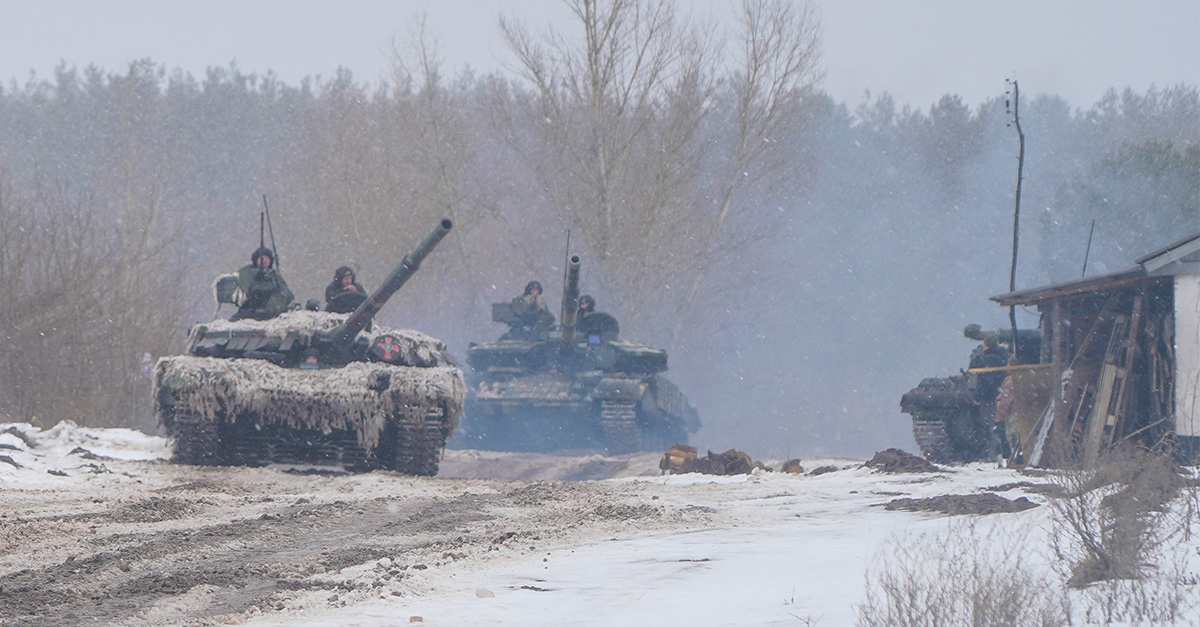


Get a free copy of Parental Rights & Education when you subscribe to our newsletter!

By adhering to a moral framework based on the principles of just cause, proportionality, and noncombatant immunity, individuals and nations can strive to conduct warfare in a manner consistent with Christian values and the broader pursuit of justice and peace.
The ongoing war between Russia and Ukraine and the recent, elevated conflict between Israel and Hamas-controlled Palestine have brought the subject of war back to the forefront of our society. How should Christians think about these conflicts? What do the Bible and the Christian ethical tradition have to say about violent conflict?
To be clear, Russia and Hamas are the unjust aggressors in their respective conflicts. Ukraine and Israel have both a right and duty to defend their country and their people.
But this article will not address either of these conflicts in detail, but rather provide three key principles from the Just War tradition that will equip American Christians to think better, and more biblically, about war and conflict.
Just War Theory has been a cornerstone of ethical discussions regarding the morality of warfare for centuries. This theory seeks to provide a framework for evaluating the justice of going to war and the conduct of warfare. Here are three main principles to keep in mind.
The first principle of Just War Theory is the concept of a “just cause.” According to Christian doctrine, a just cause for war is one that is consistent with the teachings of the Bible. One of the central themes in the Bible regarding just causes for war is self-defense. In the book of Exodus, it is written, “If a thief is caught breaking in at night and is struck a fatal blow, the defender is not guilty of bloodshed” (Exodus 22:2). This verse highlights the moral acceptability of self-defense in the face of an immediate threat.
Christian theologian Reinhold Niebuhr once clearly stated that “The sad duty of politics is to establish justice in a sinful world” and that “The just war prescription is capable of being perverted like any other moral doctrine, but it is less susceptible to perversion than most others.”
Scholarly support for this perspective can be found in the works of Augustine of Hippo, a prominent Christian theologian in the early church. Augustine argued that war could be morally justified if it served the purpose of restoring peace and protecting the innocent. He wrote, “We do not seek peace in order to be at war, but we go to war that we may have peace.”
The second key principle of Just War Theory is proportionality. This principle stipulates that the use of force in war should be proportionate to the perceived threat or harm. The Bible emphasizes the importance of proportionality in the book of Matthew, where Jesus advises His followers to “turn the other cheek” (Matthew 5:39) rather than retaliating with excessive force. This teaching underscores the Christian notion that violence should only be used as a last resort and in a proportionate manner.
Thomas Aquinas, a prominent Christian theologian, further expounded on the idea of proportionality in his work. He argued that the force used in war must be balanced and appropriate to the offense committed. This principle aims to minimize the suffering and destruction caused by warfare, aligning with Christian values of compassion and mercy.
The third crucial aspect of Just War Theory is the principle of noncombatant immunity. According to this principle, civilians and noncombatants should be protected and spared from harm during armed conflicts. The Bible underscores the importance of this principle in various passages, such as Proverbs 24:11, which states, “Rescue those being led away to death; hold back those staggering toward slaughter.” This verse reflects the Christian commitment to safeguarding the innocent in times of war.
Scholars, including Hugo Grotius, a Christian jurist and philosopher, built upon this principle in their works. Grotius argued that waging war unjustly by targeting noncombatants was a violation of natural law and Christian ethics. He wrote, “When there is a just and reasonable cause for war, the law of nature gives to each person the right to destroy the enemy who is waging an unjust war.”
Dietrich Bonhoeffer, a pastor who bravely opposed Hitler and the Third Reich, rightly noted that “The ultimate question for a responsible man to ask is not how he is to extricate himself heroically from the affair, but how the coming generation shall continue to live.”
Speaking of the necessity for Christians to join in just wars, and even to commit acts of violence themselves, he stated, “Silence in the face of evil is itself evil: God will not hold us guiltless. Not to speak is to speak. Not to act is to act.”
Refusing to fight when your homeland is under attack from an invading enemy force is not a Christian position. Pacifism, while popular with many Christians, is actually not biblical at all.
Just War Theory, deeply rooted in the Christian tradition and perspective, offers a comprehensive and biblical alternative to pacifism. It provides an ethical framework for assessing the morality of warfare. It is founded on the principles of just cause, proportionality, and noncombatant immunity, which are supported by biblical teachings and the writings of influential Christian scholars. By adhering to these principles, individuals and nations can strive to conduct warfare in a manner consistent with Christian values and the broader pursuit of justice and peace.
If you like this article and other content that helps you apply a biblical worldview to today’s politics and culture, consider making a donation here.
Notifications